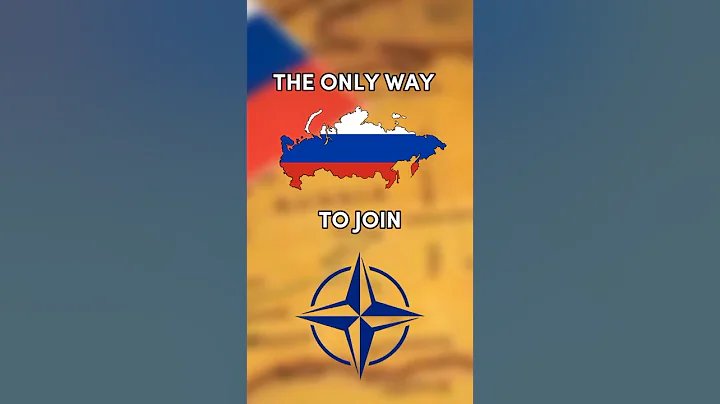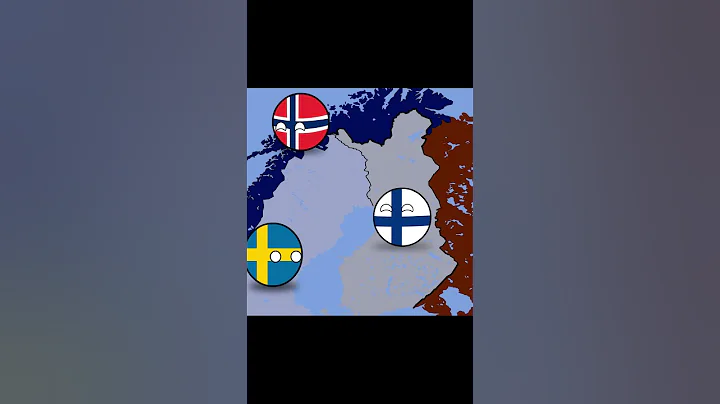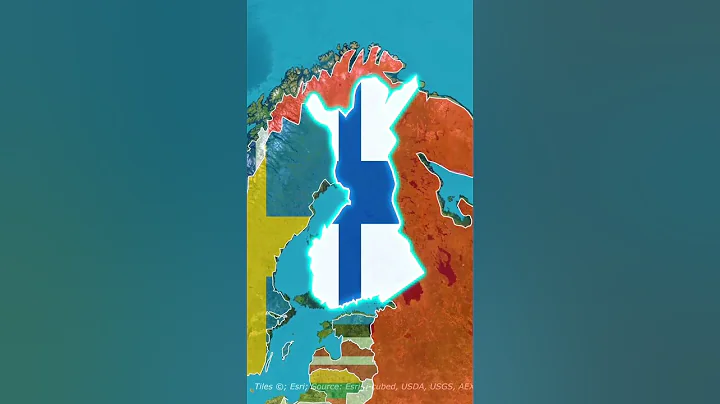
On May 15, in Helsinki, Finland, Finnish President Niinisto (right) and Prime Minister Marin attended a joint press conference. Picture/Xinhua News Agency
5 On May 15, Finnish President Niinisto and Prime Minister Marin stated at a press conference that the foreign policy committee of the president and the government had agreed to the country’s application to join NATO , and the parliament is scheduled to review it on the 16th. After review and approval, the application will be formally submitted to NATO. This means that Finland officially started the process of joining NATO and gave up the neutrality promised in the Treaty of Friendship, Cooperation and Mutual Assistance signed with the Soviet Union in 1948.
A neutral country joining NATO is not only a huge change in the history of " neutral country ", but it is also the first time for NATO. Judging from the current international situation, Finland has a high probability of joining NATO, but it will take time to verify whether it can realize its vision after joining.
Finland has long ceased to have a "neutral" status in the true sense.
html Russia's "special military operation" against Ukraine on December 24 has completely changed the security situation in Europe. It has also brought about the neutral status of Finland, Sweden and other countries. The impact.At present, from a domestic perspective in Finland, Finnish politicians have formed a high degree of consensus on "joining NATO". In recent opinion polls, Finnish public support for joining NATO has risen from about 1/4 before the Russia-Ukraine conflict to more than 3/4.
In fact, before the outbreak of the Russia-Ukraine conflict, Finland had joined the EU and was also a NATO partner. It had extensive military cooperation with NATO and no longer had a "neutral" status in the true sense.
Currently, Finland meets almost all the criteria for becoming a member of NATO, including having an effective democratic political system based on a market economy ; treating minorities fairly; being committed to peaceful conflict resolution; and the ability and willingness to make military contributions to NATO operations; It has military-civilian relations and mechanisms committed to democracy; defense expenditure reaches 2% of GDP, etc.
This shows that Finland had re-understood the European security situation and national security for a long period of time before the Russia-Ukraine conflict, thus deviating moderately from its neutral position, making its entry into NATO this time a natural progression. Moreover, it will also greatly shorten the negotiation time for joining NATO. Once the application is formally submitted, it is likely to join NATO within one year.
Opposing voices from NATO countries
Finland's determination and confidence also come from the huge support of NATO and its member states to a large extent. Since the conflict between Russia and Ukraine, NATO, as well as old member states such as the United States, the United Kingdom, Germany, France, and Denmark, as well as new member states in Central and Eastern Europe such as Poland, the Czech Republic, and the Baltics, have all shown a welcoming attitude toward Finland's membership in NATO. , and gradually achieved more unanimous opinions.
Of course, there are not without different voices. Turkey and Croatia among NATO member states have expressed opposition. Turkish President Erdogan stated on May 13 that he did not believe that Finland and Sweden should "actively" join NATO, accusing the two countries of being influenced by the domestic Kurdish group and acting as Kurdish terrorist organizations in Turkey - " PKK " provides shelter.
Croatian President Zoran Milanovic said on April 26 and May 3 that he would veto Finland's application to join NATO. First, it would anger Russia, and second, NATO should first commit to strengthening Croatia. suffrage in Bosnia and Herzegovina.
However, the opposition of the two countries does not involve national emergencies, but is more an attempt to take this opportunity to defeat NATO. On May 15, at the NATO 30 foreign ministers meeting in Berlin, NATO Secretary General Stoltenberg and US Secretary of State Blinken coordinated the positions of various countries, but the two did not express this meaning again. .
It is not conducive to the resolution of the Russia-Ukraine conflict
The border between Finland and Russia is more than 1,300 kilometers long. If Finland joins NATO, the length of the border between NATO and Russia will be doubled, and NATO will form a border with Russia on its northwest border." "Blockade" has greatly increased the risk of conflict between the two sides. Russia obviously does not want to see this happen.
Since the conflict between Russia and Ukraine, Russia has repeatedly expressed its strong opposition to Finland’s membership of NATO. On April 14, Russian Security Council Vice Chairman Medvedev stated that if Sweden and Finland join NATO, Russia will have to strengthen its land, sea and air forces in the Baltic Sea, including the deployment of nuclear weapons, to "restore the military balance."
On May 14, Putin said in a phone call with the President of Finland that Finland’s joining of NATO was a mistake and posed a threat to Russia and would also have a negative impact on relations between the two countries. On the same day, the Nordic subsidiary of Russia's Unified Power Import and Export Company took measures to "cut off power" to Finland on the grounds that Finland was "in arrears with electricity bills."
In short, if Finland and Sweden join NATO, in the long run, Russia will definitely strengthen its military presence on the Russian-Finnish border, Kaliningrad and other areas. This will intensify the bipolar opposition and intensify tension in the countries and regions along the Baltic Sea. situation, worsening the relationship between Russia and NATO, and is not conducive to the resolution of the Russia-Ukraine conflict. Written by
/Yang Yousun (Professor of the School of Government, Shanghai University of Political Science and Law)
Editor/Xu Qiuying
Proofreader/Liu Jun





















